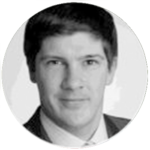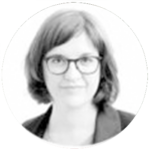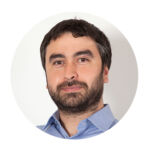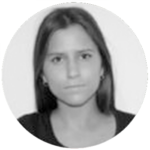Résidents : CAT (Constructive Advanced Thinking)
résidents CAT 2026 ( Constructive advanced Thinking)
L’Institut MAK’IT est ravi d’accueillir en 2026 de jeunes chercheurs exceptionnels dans le cadre de l’appel à propositions NetIAS du programme Constructive Advanced Thinking (CAT – Netias – Constructive Advanced Thinking).
Métamorphoses des droits ? Une exploration critique des limites planétaires et de leur signification pour le droit de l’environnement
Dates de séjour : 19/03/2026 – 27/03/2026
L’équipe interdisciplinaire
- Marion Lemoine-Schonne, Institut de l’Ouest, Droit et Europe, Université de Rennes
- Camila Perruso, Université Paul-Valéry Montpellier 3 / ART-Dev, France
- Anne Dienelt, Université de Hambourg, Allemagne
- Henrik Thoren, Université de Lund, Suède
- Vincent Gengnagel, Europa-Universität Flensburg, Allemagne
Présentation du projet
Le concept de « limites planétaires » est un nouveau paradigme interdisciplinaire qui présente neuf processus globaux (climat, biodiversité, ozone, pollution, etc.) comme des frontières à ne pas dépasser. Il incite à réfléchir à la finitude des ressources, aux interactions systémiques de dégradation de la nature et finalement à la place de l’homme parmi les autres espèces vivant sur la Terre. En deçà de ces seuils, l’humanité pourrait continuer à vivre dans un « espace sécurisé » caractérisé par un équilibre tel que les modes de vie n’auraient pas à se transformer radicalement par rapport à l’Holocène. Au-delà de ces seuils écologiques des changements abrupts se produiraient, non-linéaires et potentiellement irréversibles, qui transformeraient la planète vers un état inconnu. Sept limites sont déjà dépassées. Malgré les développements importants en droit de l’environnement depuis trente ans, les problèmes globaux (climat, biodiversité, acidification des océans) s’aggravent à une vitesse inégalée et le droit demeure très anthropocentré. Il existe certains outils juridiques qui contribuent à intégrer les caractéristiques de ces limites planétaires. Quelle est leur effet transformatif sur le droit à différentes échelles et dans les différentes branches (droit économique, droits humains et droit de l’environnement) ? L’objectif de ce projet est de développer un réseau de recherche à l’échelle européenne grâce aux Instituts d’études avancées (IAS-CAT), afin d’explorer comment ce concept de limites planétaires peut être réceptionné en sciences sociales et en droit. Pour explorer le potentiel du concept en sciences sociales et en droit, l’équipe travaille sur trois domaines clés : biodiversité et interactions climatiques, santé et environnement, technologies et sciences.
Événements liés au séjour de ce groupe CAT :
Les chercheurs du groupe CAT en droit, sociologie et philosophie des sciences partageront les résultats du projet : Métamorphoses des droits ? Une exploration critique des limites planétaires et de leur signification pour le droit de l’environnement
Pour en savoir plus sur cet événement
Le remodelage socio-écologique des villes et des aires métropolitaines européennes

L’utilisation actuelle des sols et des infrastructures dans les villes reflète souvent les priorités de développement du passé. Plusieurs problèmes environnementaux liés à la qualité de l’air, de l’eau et de la biodiversité dans les zones urbaines ont mis en évidence la nécessité de mettre en place des processus écologiques fonctionnels axés sur le bien-être des populations qui y vivent. En outre, le changement climatique, la croissance socio-économique continue des grands centres urbains, les changements de mode de vie et les besoins de mobilité qui en découlent imposent de nouvelles exigences en matière d’utilisation et de fonctionnalité de l’espace et des infrastructures urbains. Le verdissement urbain devient également une caractéristique essentielle, avec une redéfinition et une amplification de sa fonctionnalité dans les zones urbaines. Grâce à un certain nombre d’initiatives, de stratégies et d’objectifs (par exemple, les stratégies de l’UE en faveur de la biodiversité ou des infrastructures vertes, l’agenda urbain de l’UE, l’initiative pour des solutions fondées sur la nature), la Commission européenne encourage la mise en place d’un réseau cohérent d’infrastructures bleu-vert dans les zones urbaines des pays de l’UE. Les attentes sont très élevées. Le travail conceptuel de base et les projets pilotes ont fourni des indications pratiques, mais des défis extraordinaires de conception et de mise en œuvre subsistent. Notre proposition vise à repenser la socio-écologie des villes au-delà des frontières actuelles de la connaissance (technique, politique et transformative) et à relever les défis sociétaux liés avec des idées intégrées hautement innovantes autour de trois grandes priorités de recherche : (i) les stratégies de transposition à plus grande échelle, (ii) la multifonctionnalité et (iii) le partage des coûts et des avantages et la négociation des compromis entre les différents acteurs.
Notre approche est basée sur une connexion innovante des contextes de recherche et des exemples d’études de cas (réseau d’infrastructures vertes de la région métropolitaine Rhin-Main en Allemagne, toits verts à Lisbonne au Protugal, le jardinage vertical à Barcelone en Espagne) qui n’ont pas encore été pensés et explorés ensemble. Nous inviterons des organisations tels que Gouvernements locaux pour la durabilité (ICLEI) ou des associations professionnelles pertinents à participer à nos réunions et discussions.
Une page web spécifique, des notes d’orientation de politique publique, des publications scientifiques de synthèse évaluées par des pairs, l’élaboration conjointe d’une proposition de projet (par exemple pour les appels de l’UE Green Deal ou BiodivERsA) et une session spéciale lors d’une conférence internationale pertinente sont quelques-uns des résultats que nous espérons développer afin de documenter et de diffuser les résultats du réseau aux universitaires et aux parties prenantes en dehors du milieu universitaire.
Après son passage à MAK’IT, l’équipe sera accueillie par les Instituts d’Etudes Avancées de Budapest (IAS CEU), Paris, Uppsala (SCAS), Turin (Scienza Nuova) et Bielefeld (ZiF).

Joechen Hack
(responsable du projet)
Professeur de genie écologique
Université de technologie de Darmstadt (Allemagne)

Professeure d’espace ouvert et de design urbain écologique
Université de Geisenheim (Allemagne)
Dépasser les méthodes de recherche traditionnelles pour identifier et surmonter les attitudes négatives envers la vaccination
Dates de séjour : 20/09/2021 – 24/09/2021

Le projet vise à lutter contre la diffusion de messages anti-vaccination tant dans les interactions physiques (par exemple au sein de réseaux tels que les réunions de parents) que sur le web (par exemple dans les médias sociaux et les forums en ligne). L’équipe sera en contact avec des chercheurs et des experts locaux qui l’aideront à (a) faire un examen critique de la littérature et des documents de politiques publiques pertinents, y compris ceux disponibles auprès de la représentante de l’OMS Europe au cours de la première année ; (b) discuter de manière critique des résultats des études de cas menées dans les institutions des membres de l’équipe, y compris des entretiens avec des journalistes et des universitaires/chercheurs, au cours des deuxième et troisième années ; et (c) élaborer un document politique qui traduira les résultats de la recherche en propositions concrètes à diffuser auprès des pays membres de l’OMS et rédiger des demandes de financement afin de garantir que l’équipe sera active après la fin du financement du CAT.
Les études de cas (soutenues par des bailleurs de fonds externes) qui seront discutées portent sur (a) la compréhension de la manière dont les attitudes des jeunes à l’égard de la vaccination se construisent à partir de différentes sources d’information, en ligne et hors ligne, à l’aide d’une approche mixte consistant à interroger et à sonder des étudiants à Bordeaux ; (b) la compréhension de la manière dont les participants à un réseau virtuel en ligne propagent les attitudes liées à la vaccination (contagion sociale) grâce à un financement établi à l’Université de Chypre et (c) l’exploration de méthodes innovantes pour évaluer la contagion sociale des attitudes en matière de vaccination à l’aide d’un modèle informatique basé sur les agents et de simulations à l’Université de Cadix. Les pistes d’action y sont également abordées.
L’équipe est financée dans le cadre du programme Constructive Advanced Thinking (CAT) et se réunira deux fois par an jusqu’à la fin de l’année 2022 dans les Instituts d’Etudes Avancées suivants : SCAS (Uppsala), IIAS (Jérusalem), MAK’IT (Montpellier) et Scienza Nuoa (Turin).

Angelos Kassianos (responsable du projet)
Chargé de recherche principal en sciences comportementales de la santé / Chercheur en psychologie et informatique
University College de Londres (Royaume-Uni) / Université de Chypre (Chypre)

Antonio Rojas García
Post-doctorant en santé publique
Imperial College London (the United Kingdom)

Pédiatre & Chercheuse en épidémiologie et santé publique
Université de technologie de Chypre (Chypre)
Socio-ecological reshaping of European Cities and Metropolitan Areas
Current land use and infrastructure in cities often reflects the development priorities of the past. Several arising environmental problems regarding the quality of air, water, and biodiversity of and in urban areas have revealed the need for functioning ecological processes turned towards societal well-being. Additionally, advancing climate change, continuous socio-economic growth of large urban centers and related life-style changes and mobility needs place new demands on the use and functionality of urban space and infrastructures. Urban greenery is also becoming a critical feature with a redefinition and amplification of its functionality in urban areas. With a number of initiatives, strategies and goal-settings (e.g. EU Biodiversity Strategy, EU Green Infrastructure Strategy, EU Urban Agenda, Nature-based Solutions Initiative) the European Commission is promoting the establishment of a coherent network of blue-green infrastructure in urban areas across EU countries. The expectations are very high. Conceptual groundwork and pilot measure have provided practical insights, but extraordinary design and implementation challenges remain. Our proposal aims at socio-ecological rethinking of cities beyond the current frontiers of knowledge (technical, policy and transformative) and at addressing societal challenges with highly innovative integrated ideas around three main research priorities: (i) cross-scale upscaling strategies, (ii) multi-functionality and (iii) cross-actor cost-benefit sharing and trade-off negotiations.
Our approach is based on an innovative connection of research foci and case study examples (Rhine-Main Metropolitan Region – Green Infrastructure Network, Lisbon – Green roofs, Barcelona – Vertical gardening) which have not yet been thought and explored together. We will invite relevant networks such as Local Governments for Sustainability (ICLEI) or professional associations to participate in our meetings and discussions.
A specific webpage, policy briefs, peer-reviewed synthesis publications, a joint project proposal elaboration (e.g. for EU Green Deal or EU BiodivERsA calls) and a special session at a relevant international conference are some of the deliverables we expect to develop in order to document and disseminate the network’s outputs to academic scholars and stakeholders outside academia.
After their stay at MAK’IT, the team will be hosted by the Institutes for Advanced Studies in Budapest (IAS CEU), Paris, Uppsala (SCAS), Turin (Scienza Nuova) and Bielefeld (ZiF).
Moving beyond traditional methods of identifying and overcoming negative attitudes towards vaccinations (ACTION team)
Fellowship dates:20/09/2021 – 24/09/2021
The ACTION project aims to tackle the spread of anti-vaccination messages both in physical interactions (for example within networks like parents’ unions) and in the web (for example in social media and web forums). The team will liaise with local researchers and experts who will help them (a) make a critical review of the literature and of relevant policy documents including those available through the stakeholder (WHO Europe) during year 1; (b) critically discuss findings from Case Studies conducted at the team members’ institutions, including interviews with journalists and academics/researchers, during years 2 and 3; and (c) develop a policy document that will translate research evidence into policy proposals for dissemination to WHO Europe country-members and write-up funding applications to ensure that the team will be active after the end of the CAT funding. The stakeholder representative will be advising on translating evidence into a policy document.
The evidence to be discussed from the Case Studies (supported by external funders) are related to (a) understanding how attitudes of young people towards vaccination are built from different information sources, both on- and off-line using a mixed methods approach interviewing and surveying students in Bordeaux, France; (b) understanding how participants in a virtual online network spread vaccination-related attitudes (social contagion) using funding established at the University of Cyprus and (c) exploring innovative methods to assess social contagion of vaccination attitudes using Computer Agent-Based Modelling with simulations at the University of Cadiz. Pathways to action are also discussed.
The ACTION team is funded under the Constructive Advanced Thinking (CAT) scheme and will be meeting twice a year until end of 2022 at the following Institutes of Advanced Studies: SCAS (Uppsala), IIAS (Jerusalem), MAK’IT (Montpellier) and Scienza Nuoa (Turin).
Light as a key predictor of human health and well-being
Light exposure is a key driver for synchronising rhythms in our bodies and brains with the external 24-hour light-dark cycle. In turn, light exposure at the wrong biological time of day can disrupt our inner clock and lead to sleep loss, which has knock-on effects on our physical and mental health and well-being. Additionally, light is important for normal development of the eye, with low levels of light exposure being associated with myopia. With increasing knowledge from basic laboratory findings on the wide-reaching effects of light exposure on human health and well-being, it is time to apply this knowledge to the real world, guiding policymakers and other stakeholders. In this interdisciplinary NETIAS CAT project, five internationally recognised early-career scientists come together to address these topics, with a view to (1) develop a unified scientific framework for understanding effects of light exposure on human health and well-being, (2) develop strategies for making the existing and future scientific evidence base as robust as possible and (3) will develop strategies to communicate the complex scientific knowledge to different audiences.
Interdisciplinary team:
Manuel Spitschan : Chronobiologist, Technical University of Munich & Max Planck Institute for Biological Cybernetics
Laura Kervezee : Chronobiologist, Leiden University
Elise McGlashan: Psychology, Monash University
Ray Najjar: Neuroscience, National University of Singapore
Project website : https://lightcat.group
Unravelling existential suffering and its relation to depression in older adults: EXIST-well in nursing homes
The ageing of the world’s population is accompanied by an increase in comorbidities and disabilities. This leads to the need for long-term care in nursing homes, which report alarming levels of depressive symptomatology. Professionals in these institutions also report existential difficulties experienced by their residents.
No studies are currently available on the subject. This interdisciplinary project therefore fills this gap by clarifying the relationship between geriatric depressive symptoms and existential concerns, with the aim to develop the psycho-educational training of nursing home care professionals.
Interdisciplinary team:
Jessie Dezutter : Psychology, KU Leuven
Helena Larsson; Nurse, Kristianstad University
Gørill Haugan: Public Health, NTNU Norwegian University of Science and Technology
Suvi-Maria Saarelainen: Psychology, University of Eastern Finland
Controversial tools: researching modelling practices in water governance
The project examines how quantitative models are currently developed and used in water governance and management. It proposes a reflexive approach to modelling and examines how such an approach can kickstart transformative processes to achieve lasting, sustainable and just distributions of water in the Anthropocene.
The development and use of quantitative models in water research and practice is both dominant and growing, importantly driven by recent technological developments. Although often presented as objective and neutral, models are controversial tools. They provide insights to predict future conditions of water systems, and opportunities to foster an integrated approach to tackle water-related challenges while addressing complexities related to managing fugitive resources such as water. Yet, models and modelling are specific ways of knowing water based on measurements and quantification. Foremost, models are profoundly shaped by the numerous, sometimes arbitrary, choices of the actors involved in the modelling process and by the geographical and historical context in which they are developed.
This project sets out to research modelling as it is used to manage and govern water distributions. The project strengthens the collaboration between an interdisciplinary and international group of early career researchers studying water modelling in various geographical contexts and from different perspectives and methodologies. The group jointly works on developing a reflexive approach to modelling that is helpful to make the ethical implications involved in modelling practices explicit, and invites modellers, funders, and users to act upon these. This project explores also the challenges and opportunities to implement this novel approach through regular workshops, peer to peer learning and engagement with experts.
Interdisciplinary team:
Rossella Alba: Geography, University Humboldt
Jonatan Godinez-Madrigal: IHE Delft Institute for Water Education
Tran Bich: IHE Delft Institute for Water Education
Rozemarijn ter Horst: Geography, Wageningen University
Metamorphoses of Law(s)? A critical exploration of planetary boundaries and their meaning for the law relating to the environment
Climate change is spiraling out of control, it is cascading ecological collapse and poses a serious threat to today’s societies. The consequences of climate change necessitate a transition to sustainability. One influential way of thinking about what sustainability means in more practical terms is the planetary boundaries framework. In the age of the Anthropocene, Earth system scientists identified a number of “planetary boundaries” in 2009. The concept refers to nine inter-acting biophysical thresholds, considered true boundaries that must not be crossed to avoid abrupt, non-linear, potentially catastrophic, and largely unpredictable changes in the environment and on the planet. However, seven planetary boundaries have already been transgressed. The scientists proposed a shift away from the essentially sectoral analyses of limits to growth aimed at minimizing negative externalities, toward the estimation of a “safe operating space” for human development. But how can this concept of planetary boundaries be operationalised in social sciences and law? To explore the potential of the concept in social sciences and law, the team aims to highlight three key areas: Biodiversity & Climate Interactions, Health & the Environment, and Technologies & Science. For each issue, three critical reading grids of the law(s) relating to the environment, meaning different fields of international and national law that protect the environment, human rights law, economic law, etc., are applied, articulating the items: identification of actors, participation process and emergence of solutions. The proposed interdisciplinary project (law and social sciences) is motivated by a sense of urgency to react across all disciplines.
Interdisciplinary team:
Anne Dienelt, Law, University of Hambourg, Germany
Vincent Gengnagel, Sociology, Europa-Universität Flensburg, Germany
Marion Lemoine-Schonne, Law, CNRS, IODE, University of Rennes, France
Camila Perruso, Law, University Paul Valéry Montpellier 3, France
Henrik Thoren, Philosophy, Lund University, Sweden
Democracy at work: Historical perspectives and future challenges for employee representation in Europe
DemWo investigates the historical evolution of industrial democracy in a transnational European context. The research group is driven by two central questions: First, it explores how historical periods of crisis and transformation shaped ideas and practices of industrial democracy. Second, the project considers how these historical legacies can inform responses to contemporary challenges. With the outbreak of the Covid-19 pandemic, the rise of AI and remote work, and the large-scale transformation of entire industries, the landscape of employee participation is rapidly changing. DemWo seeks to leverage historical insights to address these challenges. Comprised of a team of five scholars from History, Philosophy, and Law, DemWo will examine these issues through a multidisciplinary approach, using methods like close reading of historical texts, source criticism, discourse analysis, and legal interpretation. The results of the research group’s work will be disseminated through a joint publication and a public event, co-organized with our stakeholder, the European Trade Union Institute. The project aims to provide well-grounded policy recommendations and contribute to ongoing debates among trade unions and other relevant stakeholders. By strengthening institutions for employee participation, DemWo seeks to enhance employee efficacy, address democratic deficits, and make societies more resilient to the numerous and multi-dimensional challenges democracies are currently facing.
Interdisciplinary team:
Philipp Reick: History, TU Berlin
Aurélie Andry: History, Université Paris-Sorbonne
Sophia Friedel: History, Ruhr-Universität Bochum
Pedro A. Teixeira: Political philosophy, Centre Marc Bloch (HU Berlin)



